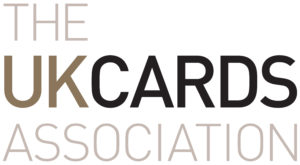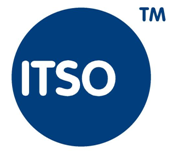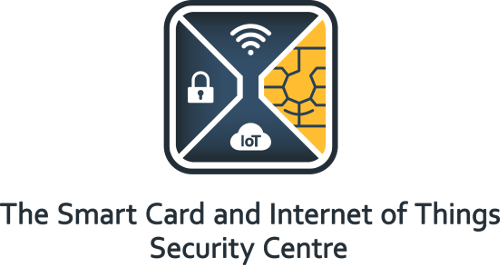EXFILES (Extract Forensic Information for LEAs from Encrypted SmartPhones): Jul. 2020 – Jul. 2023
 EXFILES (Extract Forensic Information for LEAs from Encrypted SmartPhones). The mobile phone has near universal reach. Not surprisingly, mobile devices are commonly used for illegal activity. As such, a mobile device is implicated in just about every crime committed – from identity theft and data extraction to human trafficking, child abuse and homicide. Data encryption mechanisms add to the challenges of dealing with this phenomenon. The EU-funded EXFILES project will develop new tools for law enforcement agencies to extract data and related evidence from mobile devices. Led by a consortium of law enforcement agencies, universities and cybersecurity companies, the project will focus on software, hardware and combined methods. It will also consider the ethical and legal aspects of research and exploitation. The findings will be particularly useful for the next generation of forensic experts.
EXFILES (Extract Forensic Information for LEAs from Encrypted SmartPhones). The mobile phone has near universal reach. Not surprisingly, mobile devices are commonly used for illegal activity. As such, a mobile device is implicated in just about every crime committed – from identity theft and data extraction to human trafficking, child abuse and homicide. Data encryption mechanisms add to the challenges of dealing with this phenomenon. The EU-funded EXFILES project will develop new tools for law enforcement agencies to extract data and related evidence from mobile devices. Led by a consortium of law enforcement agencies, universities and cybersecurity companies, the project will focus on software, hardware and combined methods. It will also consider the ethical and legal aspects of research and exploitation. The findings will be particularly useful for the next generation of forensic experts.
The consortium comprises leading industrial, government, and academic partners from across Europe:
- TECHNIKON Forschungs- und Planungsgesellschaft mbH, Austria
- Commissariat A L’Energie Atomique Et Aux Energies Alternatives (CEA), France
- Ministere De L’Interieur, France
- Royal Holloway and Bedford New College, United Kingdom
- Bundeskriminalamt (BKA), Germany
- Centro Nacional De Inteligencia (CNI), Spain
- Agencia Estatal Consejo Superior Deinvestigaciones Cientificas, Spain
- Netherlands Forensic Institute, The Netherlands
- RISCURE, The Netherlands
- TEXPLAINED, France
- Universite de Lille, France
- Cyber Intelligence SL, Spain
- Politidirectoratet, Norway
- SYNACKTIV, France
FutureTPM (Future Proofing the Connected World: A Quantum-Resistant Trusted Platform Module): Jan. 2018 – Dec. 2020
 FutureTPM (Future Proofing the Connected World: A Quantum-Resistant Trusted Platform Module). The goal of FutureTPM is to create a Quantum-Resistant (QR) Trusted Platform Module (TPM) by designing and developing QR algorithms suitable for inclusion in a TPM. The algorithm design will be accompanied by implementation and performance evaluation, as well as formal security analyses in the full range of TPM environments: i.e. hardware, software and virtualization environments. Use cases in online banking, activity tracking and device management will provide environments and applications to validate the FutureTPM framework. FutureTPM will provide robust and provably-secure QR algorithms for a new generation of TPMs. A key strategic objective of FutureTPM is to contribute to standardization efforts at EU level within TCG, ISO/IEC and ETSI. Because the TPM shares many functions in common with other widely-used devices, such as HSMs and TEEs, the FutureTPM solution is expected to benefit them as well.
FutureTPM (Future Proofing the Connected World: A Quantum-Resistant Trusted Platform Module). The goal of FutureTPM is to create a Quantum-Resistant (QR) Trusted Platform Module (TPM) by designing and developing QR algorithms suitable for inclusion in a TPM. The algorithm design will be accompanied by implementation and performance evaluation, as well as formal security analyses in the full range of TPM environments: i.e. hardware, software and virtualization environments. Use cases in online banking, activity tracking and device management will provide environments and applications to validate the FutureTPM framework. FutureTPM will provide robust and provably-secure QR algorithms for a new generation of TPMs. A key strategic objective of FutureTPM is to contribute to standardization efforts at EU level within TCG, ISO/IEC and ETSI. Because the TPM shares many functions in common with other widely-used devices, such as HSMs and TEEs, the FutureTPM solution is expected to benefit them as well.
The consortium consists of high calibre industrial and academic partners from across Europe, combining QR crypto researchers with TPM developers. The FutureTPM project partners are:
- TECHNIKON Forschungs- und Planungsgesellschaft mbH, Austria
- University of Surrey, United Kingdom
- UBITECH Limited, Cyprus
- Royal Holloway and Bedford New College, United Kingdom
- IBM Research GmbH, Switzerland
- The University of Birmingham, United Kingdom
- Infineon Technologies AG, Germany
- Infineon Technologies Austria AG, Austria
- Université du Luxembourg, Luxembourg
- Suite5 Data Intelligence Solutions Limited, Ireland
- INESC-ID – Instituto de Engenhariade Sistemas e Computadores, Investigacao e Desenvolvimento em Lisboa, Portugal
- University of Piraeus Research Center, Greece
- Huawei Technologies Düsseldorf GmbH, Germany
- VIVA Payment Services SA, Greece
DICE (Data Improved Customer Experience): Sept 2016-Sept 2019
DICE (Data Improved Customer Experience) is a 36-month collaborative project funded by EPSRC started on September 1st 2016. The project is aiming to develop the technology foundation for providing a personalised customer (railway travellers) experience while preserving their privacy requirements. The project will design and develop Consumer-Oriented Data Provenance (CODP) – enabling users to track how their data is being used. In addition, CODP will also empower users by providing contract validation service – enabling them to see whether the contracts they signed to give access to their data to an organisation is being honoured. The second dimension of the project is to provide data privacy during the data aggregation and dissemination phases between different rail industry partners. The project partners are University of Surrey, Royal Holloway (University of London), University of Loughborough and University of Southampton.
UK Cards Association: (completed)
The goal of this project is to examine card based technologies and taking into account recent developments in mobile payments and block chain technologies enhance the overall payment security and user experience.
SHAWN: (completed)
SHAWN (Secure High-Availability Avionics Wireless Networks) is a 30-month collaborative project started on January 1st 2014 and co-funded by InnovateUK. The project is developing the technology required for a robust, secure and high-bandwidth wireless communication system suitable for intra-aircraft avionics digital data networks. On-board aircraft computing systems currently use wired interconnects. The project aspires to replace some of these wired avionics networks with wireless alternatives to realise the benefits of; weight reduction through replacement of cabling and connectors; reduction of effort and cost in wiring design and installation; reduction of effort and cost in wiring maintenance (scheduled and unscheduled), and greater system design flexibility and scalability. The progress made through the project will be presented – including the assembly of a network demonstrator – and a summary of the challenges that need to be overcome prior to deployment will be given. The paper will also summarise the proposed route to standardisation and the parallel industry activities that are already underway. The project partners are GE Aviation Systems (Lead), Critical Software, HW Communications, Royal Holloway (University of London) and University of Strathclyde.
Visa International: (completed)
The goal of this project is to examine the current status of card based financial transactions and provide potential enhancements to the core payment infrastructures.
Transport for London: (completed)
The goal of the project is to review the security of smart ticketing in public transport. It also reviews the use of mobile phones for ticketing, in terms of their security and performance.
ITSO: (completed)
The project looks into national standardisation of “Smart Ticketing” and security of smart card technology related to transport.






